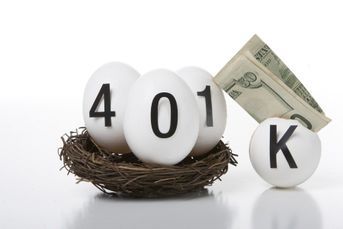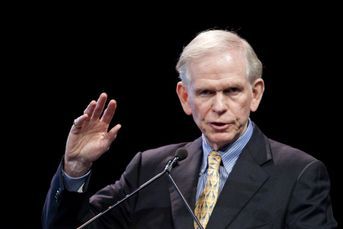SEC to vote on money fund reform plan this month: Source
Under new rules, prime money funds to float $1 share price, investors to be charged for withdrawals sometimes.
The riskiest money-market mutual funds will have to let their share prices fluctuate and charge investors withdrawal fees during times of stress under tougher U.S. rules set for adoption this month.
The Securities and Exchange Commission is poised to impose both requirements on some money-market mutual funds, which required a federal rescue during the 2008 financial crisis, according to a person familiar with the matter who asked to not be named because terms of the final rule haven’t been made public.
(Related: SEC money fund reform won’t placate everyone))
Key parts of the proposal have been strongly opposed by the funds’ trade group, the Investment Company Institute, and fund-management company Federated Investors Inc. (FII) which said that a floating share price would destroy demand for prime institutional funds, which invest in short-term corporate debt.
The proposal, which was issued last year, is likely to be voted on by the five-member commission on July 23, the person said.
The plan would require prime institutional funds to float the value of their share price, traditionally set at a stable $1, which makes them a popular place to park cash. It also would require funds to impose a one-percent fee on redemptions and permit them to temporarily suspend withdrawals when liquidity drops well below required levels.
(See also: SEC’s Piwowar talks fiduciary, money fund reform)
PREVENTING RUNS
The plan is intended to make money funds, which manage $2.5 trillion in assets for retail investors and corporations, less vulnerable to runs by investors. The rule would not apply to retail funds or those that predominantly invest in U.S. government and municipal securities.
SEC spokeswoman Gina Talamona declined to comment.
The proposal was part of the SEC’s response to vulnerabilities exposed by the 2008 crisis, when the $62.5 billion Reserve Primary Fund collapsed and money funds temporarily required a U.S. government guarantee. The Reserve Fund “broke the buck” when its losses on Lehman Brothers Holdings Inc. debt caused the value of its shares to fall below $1, sparking massive investor withdrawals from other prime money funds.
To halt the panic, the Treasury Department guaranteed all money-fund shareholders against losses from default, putting the government on the hook for about $1.6 trillion in corporate and municipal debt, according to estimates by research firm Crane Data.
SEC Chair Mary Jo White is pushing to hold the vote on July 23, the person said. The SEC has been under growing pressure from the Federal Reserve and other U.S. and global regulators to finish the rule.
(Bloomberg News)
Learn more about reprints and licensing for this article.








